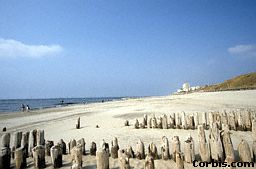| Group | Germanic (with Gothic, German, Swedish etc.), West Germanic (with Dutch, English etc.) |
| Geography | Spoken today in the Dutch state of Friesland, also on the Frisian islands in Germany and the Netherlands. Formerly was spread wider in Lowlands and even on the Jutland peninsula. |
| History | The Old Frisian language is known since the 9th century. In the early mediaeval times, a lot of documents, epic and historical, were written in it. From the 16th century, when Frisia loses its independence, the language existed only in colloquial forms. Today it is officially uised in Friesland and is gradually revived. |
| Phonetics | Frisian is especially rich in vowels and diphthongs: at all there are about 25 diphthongs and 6 triphthongs in the language. Diphthongs, as well as single vowels, vary in the root ablaut mutation (doar [do:ar] 'door' - doarren [dwaren] 'doors'). Together with Afrikaans Frisian is unique among Germanic languages for its nasal vowels. The sound [r] looks more like English, unlike Dutch and German - it is alveolar, not uvular. Unvoiced p, t, k are aspirated before a stressed vowel. |
| Nominal Morphology | Frisian morphology is considerably richer than that of its closest relative English. The noun here has two genders, two numbers and two cases. Old Frisian had also the feminine gender, but later it coincided with masculine. The plural is formed by -s and -en endings (heit 'father' - heiten). Old Frisian kept the remains of four cases, while today's language preserved only genitive. Moreover, genitive as well is used less and less frequently, replaced by complex constructions (mem har stoel 'mother's chair'). There are definite (de, it) and indefinite (in) articles. |
| Verbal Morphology | Formerly conjugated, the Frisian verb now has personal changes in the singular only. The tenses are common with similar Germanic languages, including English. All other verbal categories are also formed in an analytical way. |
| Lexicon | The Dutch language is much more suitable for expressing complex social and cultural terms, and this is why there are plenty of Dutch words in Frisian. The whole population of Friesland can speak both languages. |
| Writing | Latin alphabet |
| Close Contacts | The closest Germanic language is English, more distant ones are Dutch and Afrikaans. |
| Sample | Us heit, dy't yn de himelen binne; jins namme wurde hillige.
Jins keninkryk komme. Jins wollen barre allyk yn 'e himel, sa ek op ierde.
Jow s hjoed s deistich brea. En forjow s s
skulden, allyk ek wy forjowe s skuldners. En lied s net
yn forsiking, mar forlos s fan 'e kweade, Hwant Jowes is it keninkryk
en de krft en de hearlikheit oant yn ivichheit..
Our Father who art in heaven, Hallowed be thy name. Thy kingdom come, Thy will be done in earth, as it is in heaven. Give us this day our daily bread. And forgive us our debts, as we forgive our debtors. And lead us not into temptation, but deliver us from evil: For thine is the kingdom, and the power, and the glory, for ever. Amen. (Modern West Frisian) |
| Picture |  |
| More info |